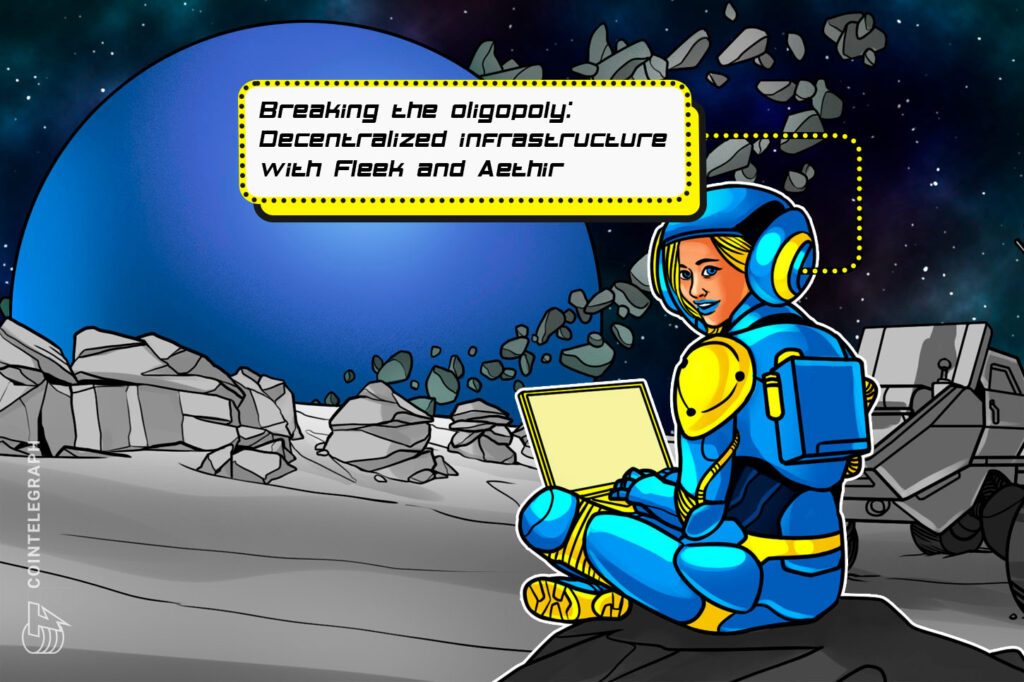30s Summary
In the “Hashing It Out” podcast, host Elisha Owusu Akyaw talked with Harrison Hines and Kyle Okamoto about decentralized physical infrastructure networks (DePIN). They address how DePIN is opening up access to resources like GPUs and cloud infrastructure, which are usually dominated by large companies, intending to challenge the monopoly of such firms. Hines suggested decentralizing supply networks using blockchain technology could correct power imbalances and Okamoto believes community-driven networks could improve efficiency and resource access. However, total decentralization presents challenges, such as DePIN’s reliance on DNS.
Full Article
In the latest episode of “Hashing It Out” podcast, the host Elisha Owusu Akyaw chats with Harrison Hines, the CEO of Fleek Network, and Kyle Okamoto, the Chief Tech Officer of Aethir. They dig in on what’s trending in the world of decentralized physical infrastructure networks (DePIN).
Their discussion revolves around how DePIN is changing the game by opening up access to resources like GPU’s and cloud infrastructure, something traditionally dominated by big-name players like AWS and Google. What’s the goal here? To punch a hole in the current monopoly maintained by traditional tech giants.
Hines explains that this is just an extension of what companies like Uber and Airbnb began – decentralized supply networks. But instead of a corporation owning and controlling everything, the blockchain is used to create a platform that is controlled by the community, not an individual or single entity. He believes this could fix the usual imbalance of power that you find in traditional platforms, where operators often don’t see eye to eye with those at the top.
Okamoto, meanwhile, points out the problems with the old school cloud computing model. He isn’t a fan of AWS and Google Cloud dominating everyone else, limiting access to important resources. His argument? Community-driven networks, like the one Aethir’s got going on, could level the playing field in terms of accessing resources – all while making everything more efficient.
Although both agree there’s more to it than just full decentralization. As Hines points out, even projects on the new web (Web3) aren’t completely decentralized, especially when you consider that DNS is often a sticking point. Still, it’s clear the industry is growing and evolving, with these kinds of projects working hard to shake up different parts of their infrastructure.
DePIN has a real shot at rocking the boat and changing industries from the inside out, but reaching total decentralization is easier said than done. Take a listen to the rest of their chat to hear more about where DePIN is headed and how it might shake up our tech future.
Ready to tune in? Find all the episodes of Hashing It Out on Spotify, Apple Podcasts or TuneIn. Plus, you can check out a full lineup of other informative podcasts on the Cointelegraph Podcasts page.
Source: Cointelegraph

